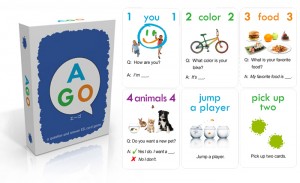EFL eikaiwa ES extensive reading kids language courses Language learning materials Penguin Kids Readers readers Reading Review reviews school management teaching
by sendaiben
4 comments
Penguin Kids Readers
Resuming our kids’ readers roundup after a brief hiatus 🙂
I received a set of these a couple of weeks ago from the publisher (thanks!). While I appreciate the gesture, it will not affect how I review them here.
Having said that, this is a fantastic new series that has a lot going for it. There are currently 23 readers over six levels of difficulty.
Level 1 (200 headwords)
Level 2 (400 headwords)
Level 3 (600 headwords)
Level 4 (800 headwords)
Level 5 (1000 headwords)
Level 6 (1200 headwords)
As you can see, the jump between levels is fairly minimal, something that is extremely important for beginner and younger readers.
The current titles are all based on Disney films, and the artwork and covers are beautiful. The writing isn’t bad, either, in that the books actually tell coherent stories. That is often a problem with low-level readers based on films or TV content -they try to fit in too much with a minimal wordlist so the stories end up not making sense. Luckily that is not the case here. In many of the books they have taken just one scene from a film and told that. Our students found the books really attractive due to the topics, but there was enough of a spread that they had not seen all of the movies featured.
Another thing I liked were the simple exercises in the back of the books. They have pre-reading and post-reading questions that are visual and fairly easy -perfect to do in class after reading or to check out of class reading. If anything, I would have liked to see this section be slightly longer.
Apparently the series will end up having twelve books at each level, and there will be different content in the next wave of books (ie not just Disney).
Overall, this is a fantastic new resource. We ended up ordering two more sets, and I’m really looking forward to the release of the rest of the books in this series.
curriculum EFL eikaiwa ES evaluation expectations kids language courses Language learning school management teaching testing theory university
by sendaiben
2 comments
English teachers aren’t really teachers, are they?
This is something I have been thinking about for a while now.
I was just drafting this post when I saw this link by Steve ‘the Linguist’ Kaufmann (NB: I started writing this post three months ago).
I’m not sure that we EFL teachers are actually teachers.
After all, we are in charge of helping learners become proficient in a language. I see this as a skill to be practiced rather than a set of knowledge to be taught. I have always compared language learning to sports, and described what learners should be doing in terms of practice and training. The sports analogy seems to work very well:
1. some people are naturally better at sports/languages than others
2. anyone can get better at sports /languages through practice
3. formally studying sports/languages is of limited use on its own, although it can help if done in conjunction with practice
4. being good at one sport/language will often help you with another one
5. if you want to get better at a sport/language, you should aim to do meaningful practice every day
6. training equipment will help you improve at a sport/language, but is no substitute for practice
7. drills can be helpful, but you also need to practice under realistic conditions if you want to get better at a sport/language
You can probably make similar analogies to playing a musical instrument, or producing art.
The point is, if we are coaches rather than teachers, don’t we need to re-examine our teaching situation?
Are formal classes, exams, class assignments, and grades appropriate ways to help our students master the skill of English language use (as opposed to the academic equivalent knowledge), or are they actually counter-productive?
Now, most of us are restrained by our work situations: we can’t abolish classes or grades, but perhaps there is some way we can change our classes to make them more practical. I’ll be thinking about that in the new academic year, starting in April here in Japan.
curriculum EFL expectations kids school management teaching theory
by sendaiben
leave a comment
An interview with Ken Robinson
A great interview with Ken Robinson.
curriculum EFL eikaiwa ES kids language courses Language learning school management speaking teaching
by sendaiben
4 comments
AGO: the best 900 yen you’ll spend this week
AGO is a card game, similar to UNO or Switchit, that practices simple question and answer patterns. It is ideal for upper elementary or junior high school and above. Students play to get rid of all their cards: the first person to do so is the winner. The game mechanics are easy, and almost all students already know them from playing UNO.
There are eventually going to be three levels: aqua, green, and orange (hence AGO, but I suspect that the pun with eigo was also a factor in naming this product). The first level, aqua, contains very easy questions like ‘do you like…?’ and ‘what season is it now?’. There is some scope for personalization.
The green level just came out at the end of last month, and includes more complex questions, more scope for students to make their own questions, and more ‘game cards’ (‘pick up’, ‘jump’, and so on).
The orange level is due to be released next year.
The production values are pretty good and the cards look and feel great. Well worth the 900 yen, especially if you teach junior high school and up.
business curriculum EFL eikaiwa ES kids language courses Language learning online resources school management self-study teaching vocabulary
by sendaiben
leave a comment
Quizlet may just be what I have been looking for all these years…
For years, I have been looking for a simple, cheap (free?) online tool to allow our younger students to work on their vocabulary outside of class.
Jim George, a friend and fellow school owner, has been going on about Quizlet for a while now, but I didn’t really pay attention until he sent me a detailed email this morning explaining the functionality.
It looks great.
Basically it’s a site that allows people to create and study simple flashcard quizzes online. Free accounts (students) can access content and premium accounts ($15 a year) can create quizzes with words and pictures.
The great thing about it is that as a school we can create study groups and upload content for the students to practice every week. Students can make accounts and join the groups and practice the content for their class. We can also monitor their progress by ‘friending’ them.
It sounds like it has everything we need. I’ll be trying it out over the next few weeks, then I’ll report back with my impressions.
Anyone else use Quizlet?



